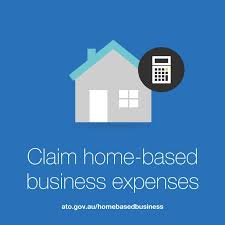Posts Categorized: Tips of the week
Entertainment (meals and FBT)

Entertaining clients, customers, employees and suppliers is a cost of doing business.
But the total cost of entertainment varies wildly depending on who does what with whom where and why. According to the ATO there are 38 consequential outcomes.
The main determinant of the outcome is which of three FBT methods is used to determine any Fringe Benefits Tax – those being:-
- Actual method (being the only method that provides an exemption for minor and infrequent expenditure).
- 50/50
- 12 week register.
Generally speaking, the smaller the business, the more attractive is the actual method (but again that depends on who is doing what with whom where and why).
The next consideration is what exemption can be used.
The actual method (which as stated above can only be used when the actual method has been chosen) exempts entertainment which is minor and infrequent and the cost per employee is less than per employee.
Also exempt is in house meals – being simple meals such as sandwiches.
You can read more here.
But the costs of getting it wrong is huge as the FBT tax rate is 47% (and that is without including fines and interest).
Please call us if you have any questions.
Is your ute or van subject to FBT?

Is your ute, van or workhorse vehicle subject to Fringe Benefits Tax (FBT)?
Workhorse vehicles have always been treated favourably.
However the ATO now has safe harbour provisions which you need to test against.
If those safe harbour provisions are satisfied for each vehicle, then no FBT is payable. This means that you have to have the necessary proof and declarations.
If those safe harbour provisions are not satisfied, then you will have a very hard time forming an opinion that FBT does not apply.
So that you can better understand your position, you can read more by clicking on the following link – click here.
This matter has become even more important pursuant to the ATO’s more aggressive approach in reviewing car claims and employer provided cars.
We welcome any question you may have.
Important SG super & payroll reminders

With the end of the March quarter comes some important SG super and payroll reminders.
Friday 28th April is the end date for satisfying Super Guarantee (SG) super obligations for the March 2023 quarter.
But beware as some of the clearing houses have a submission and payment deadline well before then. May be even next Tuesday!
SG super is payable on all forms of remuneration including:-
- Commissions
- Bonuses (but see below)
- Directors’ fees and all other forms of remuneration to directors
- Allowances (except where fully expended)
- Contractors paid mainly for their labour
But excluding the following remuneration:-
- Overtime
- Reimbursements
- Unused annual leave on termination
- Bonuses that are only in respect of overtime
- Bonuses that are ex-gratia but have nothing to do with hours worked (which is harder to satisfy than what you might think)
- Employees carrying out duties of a private or domestic nature for less than 30 hours in a week (such as nannies)
- On quarterly remuneration greater than $60,220
- Non-residents performing work for an Australian business outside Australia
If your payroll system has been set up correctly then it will perform these calculations for you. We would welcome the opportunity to assist you with this and if need be refer you to a good book-keeper.
SG super should never be paid late as late payments attract substantial interest and penalties. Furthermore, and SG (and BAS) liabilities that remain unreported and unpaid after 3 months become personal debts of directors.
So if you haven’t paid your employer super obligations already, we recommend doing so today!
We take this opportunity to remind you of the following matters:-
- The SG rate is currently 10.5%.
- We are currently following up any employing clients who have not returned their 2023 FBT questionnaire. You can read more in our email to employers of 31st March.
- Single Touch Payroll disclosures will be increase under what is called STP2. Your software provider will have and will continue to be in touch about what needs to be done – but please note their extensions are about to run out and you soon need to be fully compliant.
- Be very wary of this as STP2 permits Fair Work Australia to follow up any non-compliance, particularly in respect of under paid wages.
- Please be mindful that there is no longer a $450 threshold.
As always, we welcome your calling us to ask any question you may have.
Important change to claiming home office expenses

Do you want to claim the home office expenses you are entitled to claim for 2022/23? Then read on as the ATO has made an important to change claiming home office expenses.
Furthermore, they apply from 1st March.
We have been able to claim under one of two methods:-
- A percentage of all costs based off the work area or
- A set rate per hour
The set rate per hour had been 52 cents per hour but an alternative rate of 80 cents per hour was offered from March 2020 to June 2022 to accommodate all of those working from home for the first time and who were not used to keeping records. The 80 cph rate was an all in rate. Only the 52cph rate allowed one to claim phone, internet and assets (whether claimed in full or depreciated). As I said, that 80cph rate is no longer available.
Please note that this post is not addressing claims where a business is run from home (with important capital gains tax implications). That will be covered in a future post.
A new rate is available from 1st July 2022 but please note:-
- The rate has increased from 52 to 67 cents.
- What the rate covers has changed.
- There have been important changes to the records required.
- But there is good news. The requirement to have an area set aside to undertake work activities has been removed.
What does the rate cover?
- Electricity and gas
- Home and mobile phone usage
- Internet connection usage
- Printing and stationery
The change is that other than electricity and gas, these costs could be claimed separately.
Depreciation is to be claimed separately
What records you now need to keep
- Receipts – but just one quarterly electricity or gas bill (I don’t know about you but I receive these bills monthly).
- A record of actual hours worked – no estimates. So you will need to keep timesheets, rosters, diaries and other such documents.
- You will need to keep these records for up to 5 years – even though most taxpayers are required to keep for less.
- Please note that for assets that are depreciated, one must keep the asset purchase receipt for 5 years from after the last depreciation claim. That could be 10 or 15 years after the date of purchase. We suggest moving a copy of the receipt into next year’s tax records when starting your record keeping for a new financial year.
A partial year concession
These new rules announced last week apply from 1st July 2022.
As a concession to those who haven’t kept a record of actual hours worked since 30th June 2022 to 28th February 2023, a reasonable estimate, or in the ATO’s words, a representative record, will suffice.
To be able to claim, you must keep an actual record of hours worked from 1st March 2023.
How to keep records
- Paper
- Electronic – including the ATO’s myDeductions tool (which you can access at https://www.ato.gov.au/General/Online-services/ATO-app/myDeductions/)
This is an important change which you need to adhere to claim home office expenses from 1st March 2023.
We welcome any questions you may have.
5 key actions in 2023

There are always challenges but we seem to currently have our fair share. We currently see 5 key actions required to navigate 2023.
The question is what are you going to do about them? Are you going to let them control you? Or are you going to protect yourself from them to ensure your business or yourself personally doesn’t suffer?
We see 5 risk areas to navigate in 2023:-
- Cyber crime & computer safety.
- Inflation.
- Interest rates (and cash flow).
- Technology.
- Protect personal wealth that is otherwise exposed.
The degree to which these 5 risks affect you may be different to others and may be one or two don’t affect you. But doing nothing is rarely the best option. We therefore encourage you to attend our upcoming webinar on Tuesday 31st January at 5:30 during which we explore these risks – and more importantly, the 5 keys actions you can implement in face of them.
You can reserve your place by clicking here.
And as we are passionate about helping small businesses, we welcome your extending this invitation to family, friends and business colleagues.

SG deadline reminder

I trust you had an enjoyable festive season – and back into it we go! So here is a quick SG deadline reminder.
Friday 27th January is the end date for satisfying your Super Guarantee (SG) super obligations for the December 2022 quarter.
Please make sure you do not confuse this obligation with the December quarter BAS. The December quarter BAS automatically has a one month extension to 28th February to all. There are no extensions for reporting and payment of SG super.
Please note that super clearing houses take up to 8 days to pass the money through to the super fund. It therefore means that processing and payment to the clearing should be made as soon as possible.
And please make sure you have been calculating super at 10.5% since it increased on 1st July 2022.
SG super should never be paid late as late payments attract substantial interest and penalties. Furthermore, SG (and BAS) liabilities that remain unreported and unpaid after 3 months automatically become personal debts of directors.
We also take this opportunity to remind you of the imminent migration to Single Touch Payroll 2 with its extra reporting requirements. Please do not hesitate if you would like an introduction to a payroll specialist.
We welcome any questions you might have.
How to avoid making Christmas too taxing

Entertaining and providing gifts at Christmas time to staff, customers and suppliers is a cost of doing business. However, there are some important FBT, GST and income tax considerations and outcomes to keep in mind.
As an employer, you need to be careful at what you provide at Christmas. The rules are complex and the costs of getting it wrong can prove very expensive.
We will outline some of the more common scenarios and what to be careful of.
Under-pinning the implications are the following key points:-
- Christmas parties, entertainment and gifts are all treated under entertainment tax rules.
- FBT applies to benefits given to employees.
- There are no FBT implications on entertainment and gifts given to customers, clients and suppliers.
- There are three methods under which an employer can quantify the taxable components of any entertainment expenditure – in fact there are 38 permutations depending on who is entertained where, how and with whom. We will largely address the actual method which is the one used by most small businesses (as it usually results in the best outcome). It is beyond the scope of this briefing to address the 12 week log method and we will only touch upon the 50/50 method where relevant.
- Christmas comes but once a year and to the best of my knowledge and experience does so on 25th December. Nevertheless, the ATO treats Christmas parties and gifts as being what are called minor, infrequent and irregular benefits.
- Such minor benefits are FBT exempt where they cost less than $300 (including GST) provided the actual method is used to quantify entertainment.
The Christmas party
Where entertainment is calculated under the actual expenditure method (which is the most common method for small businesses):-
- A Christmas party is held on-site on a work day, the whole cost for each employee will be an exempt fringe benefit. So too will the spouse’s cost provided the cost per spouse is less than $300. No income tax deduction can be claimed for the cost of the party including that in respect of any family members that may attend. Taxi travel to or from the workplace (not both ways) will be exempt from FBT and not tax deductible.
- If a Christmas party is held off the work premises, then the whole cost will be exempt from FBT provided the party costs less than $300 per person (employees and their spouses). No income tax deduction can be claimed for the cost of the party including that in respect of any family members that may attend.
- If an external Christmas party costs more than $300 or more per person then the total cost is subject to FBT.
- The cost of any entertainment provided during the party (whether that be at the work premises or outside) will be exempt if it costs less than $300 per head – for example a DJ, musician, clown and comedian.
- The cost of entertaining clients, customers and suppliers is not subject to FBT and is not tax deductible.
- If any exemption is exceeded then FBT is payable. Consequently, an FBT Tax Return must be lodged and FBT paid (the FBT tax rate being the same as the top marginal tax rate). Please keep this in mind when completing the 2018/19 FBT Questionnaire in early April 2019.
- All other entertainment during the year will be subject to FBT on a case by case basis.
Where entertainment is calculated under the 50/50 method:-
- 50% of the cost will be subject to FBT and this portion will be tax deductible. The other 50% will not be subject to FBT and will not be tax deductible. An FBT Tax Return must be lodged and FBT paid.
- Only taxi travel from home to the venue will be FBT exempt and not deductible for tax.
- 50% of all other entertainment during the year will be subject to FBT.
Gifts
The following gifts are exempt from FBT and are tax deductible:-
- Hampers, bottles of wine, gift vouchers, a pen set costing less than $300 (inclusive of GST).
The following gifts are subject to FBT and are not tax deductible:-
- Tickets to a sporting event or theatre, holiday, accommodation, etc.
The GST treatment of gifts is:-
- The GST component of any tax deductible portion can be claimed back.
- The GST component that relates to the non tax deductible portion can’t be claimed.
Please do not hesitate to call us should you have any queries.
Important Director Identification Number (DIN) update

This has no doubt been caused by their phone systems being in meltdown. But finally we have some logical relief in having to apply for a Director Identification Number (DIN).
A DIN is required for all directors including those of trustee companies and trustees of self managed super funds.
A director is issued with a unique number irrespective of how many directorships are held.
Thankfully we finally have some common sense relief.
Those that were a director before November 2022 need not apply for a DIN if:-
- The sole or all companies of which one is a director are liquidated before 1st
- The sole or all companies of which one is a director are deregistered before 1st
- A deceased director (you would think this exemption would have bene in place for the start particularly given one of the stated aims of this system is to eliminate phoenix activity).
- Directors who have ceased due to losing capacity.
- Director who resign all directorships before 1st December. Please note though that it appears there is a carve out for this for those who try and re-appoint themselves after 30th November.
If you haven’t applied as yet for your DIN, please do so immediately.
The fine for not doing so is $13,200 and it will be recorded as a criminal offence. It remains to be seen what relief may be given – but don’t rely on that.
Need to no more? Then either call us or check this earlier blog (and related articles).
How you can make sure that your super doesn’t go to the wrong people

How you can make sure that your super doesn’t go to the wrong people? It’s a question anyone with super should ask themselves. Even if your balance is low, a life insurance payment can create a whole new scenario. Peoples biggest 2 assets are almost always their family home and their super. Your Will dictates who is to get our home if it is owned entirely in your own name. If it is owned jointly with your partner, then they will get your half should you pre-decease them; in other words it doesn’t form part of your estate. Your super though is held in trust for you. If your super is with a public fund (industry, retail, employer and so on) then it is up to their board trustees to decide who is to receive your super in the absence of a complying death benefit nomination. The trick is to have the right form of nomination in place. When it comes to self managed super funds, it can become of whole lot trickier. Not only do you need the right form of death benefit nomination in place, but you must be wary of the trust deed. As they are generic in nature, they don’t reflect your wants or desires. Moreover, they can confer general powers which are open to be used in inappropriate ways depending on how the cards fall. In an upcoming 30 minute webinar we will explore:-
The webinar will be held from 5:30pm on Wednesday 30th November. You can register by clicking on the following link – https://us02web.zoom.us/webinar/register/WN_Ov2inp73QdG955M_Bhk9Jg And as we are passionate about helping people to become more successful and secure, we welcome your extending this invitation to family, friends and business colleagues. |
Does your firm comply with Privacy Laws?

Does your firm comply with Privacy Laws? The recent Optus and Medibank privacy hacks have been alarming. They are also a clarion call to assess how your firm collects, holds and protects data.
And clearly what will happen next is that both laws and expectations will tighten. And tighten they will as our privacy and security requirements lag major countries and in particular Europe.
So what must you do?
Firms with group turnover in excess of $3,000,000 must comply and adhere to the 13 principles as set out the Privacy Act.
You can read more about those principles here
But those that handle Tax File Numbers (like tax agents) or medical records must adhere to these principles no matter what their turnover is. Credit reporting firms are also automatically covered by the Privacy Act.
So what does this mean you need to do
Not by all means a complete list, some of the key activities you should undertake are:-
- Consider what data you actually need.
- Consider how your team should best ask and collect personal data.
- Consider what data you hold is sensitive.
- Consider how long you should keep that data.
- Consider how you are going to keep that data – such for how long, is it going to be encrypted, who has access to it.
- Consider where you store data.
- Undertake regular cyber training.
- Adequately train team members on all requirements.
- Review regularly!
- And take out cyber protection insurance – we say this last as prevention is better than cure.
Please ask us if you would like a referral to a suitably qualified technical expert or cyber insurer.
